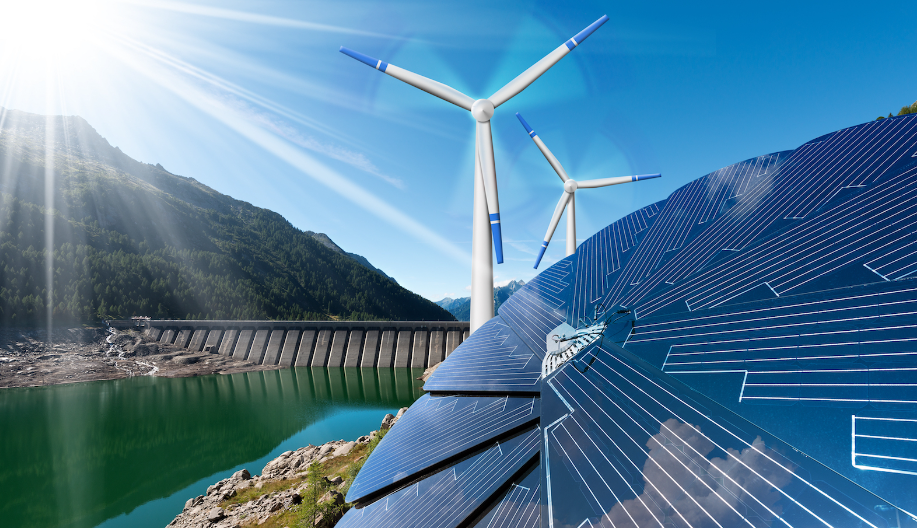Investing in Renewable Energy Sources: Vikki Gerrard La Crosse Explores What it Means for the Environment and Residents
The cleanest and most efficient form of energy is renewable energy. Investing in renewable energy sources can help protect our environment and the health of residents. Vikki Gerrard La Crosse looks at how renewable energy affects the environment and benefits those living in Tunbridge Wells.
How Renewable Energy Differs From Traditional Sources
Renewable energy sources are clean, abundant, and sustainable forms of energy. In contrast to traditional sources like fossil fuels, renewables don’t produce harmful emissions or damage the environment. Renewables also have a much smaller carbon footprint than conventional electricity production, which helps conserve the earth’s natural resources.
In addition, investing in renewable energy sources helps create jobs, building up the local economy. Renewables also have greater security of supply than traditional sources. By producing electricity locally, businesses and homeowners can rely on a steady power source without worrying about disruptions caused by external influences such as fuel price fluctuations.
The Push To Invest In Renewable Sources
With the increased awareness of climate change and its environmental effects, more and more people are pushing to invest in renewable sources. Some countries have made significant commitments to renewable energy investment, like the United Kingdom’s decision to phase out coal-fired power plants by 2024.
The UK government has set a target of net zero carbon emissions by 2050, and renewable energy is seen as a critical part of achieving this goal. Local councils have started to invest in initiatives that promote solar energy, wind power, and hydroelectricity.
Positive Effects On The Environment
Renewable energy sources are a vital part of the effort to reduce greenhouse gas emissions. Renewable energy sources produce little-to-no pollution, meaning they don’t release dangerous chemicals or particulates into the air that can cause respiratory and other health problems. In addition, renewable energy sources are a clean source of power, which means they do not rely on fossil fuels—a major source of carbon dioxide. It reduces the number of greenhouse gases in the atmosphere, helping to slow climate change and its effects.
The use of renewable energy also helps to reduce water pollution as well. Producing energy from traditional sources like coal can lead to runoff that contaminates local streams and rivers with heavy metals and other pollutants. Renewable energy sources don’t create this type of runoff, meaning fewer pollutants enter waterways and the environment.
Financial Benefits For Residents
When residents of Tunbridge Wells invest in renewable energy sources, they can also benefit financially. Residents can save money on their energy bills by investing in renewable energy sources. Renewable energy sources are often cheaper than their traditional counterparts, and many renewable energy sources will produce electricity for free or at a reduced rate. This can help to lower the cost of living and make it more affordable for residents.
In addition, investing in renewable energy projects can create jobs in the surrounding area. Renewable energy sources require professionals to install, maintain and develop them. It can provide residents with employment opportunities, helping boost the local economy.
Other Benefits Of Renewable Energy
Renewable energy sources also provide several other benefits, such as increased energy security. By producing electricity locally, businesses and homeowners don’t have to worry about price fluctuations or supply shortages caused by external influences like fuel prices. Investing in renewable energy can also reduce dependence on foreign energy sources, helping to make the economy more resilient.
Finally, investing in renewable energy sources can help reduce energy costs for businesses and homeowners. Solar panels, wind turbines, and other renewable energy projects require less maintenance than traditional power sources, making them more efficient and cost-effective. Investing in these sources can provide a long-term solution to rising energy costs.
Making The Switch To Renewable Energy
Switching to renewable energy sources is a decision that requires careful consideration. The upfront cost of installing and maintaining renewable energy sources can be high, but the long-term benefits are worth the investment. Local businesses and residents should research the different renewable energy sources available and determine what incentives local and national governments offer.
Want to help the environment but not ready to leap? Vikki Gerrard La Crosse believes there are many small but effective steps locals can take to reduce their carbon footprint. These include reducing energy consumption, properly disposing waste, and recycling materials. Energy consumption can be reduced through simple steps such as turning off lights when not in use or installing energy-efficient appliances. Proper waste disposal and recycling can help divert tons of materials from landfills, limiting the number of toxins that enter the environment.
Final Thoughts
Investing in renewable energy sources offers many benefits for local businesses and residents. It can reduce the environmental impact and provide financial savings over the long term. Renewable energy sources also create employment opportunities and increase energy security. To make the switch, individuals should research their options carefully and take advantage of any incentives available. Those who don’t feel ready for the leap can still help the environment by making small but effective changes in their daily lives.

